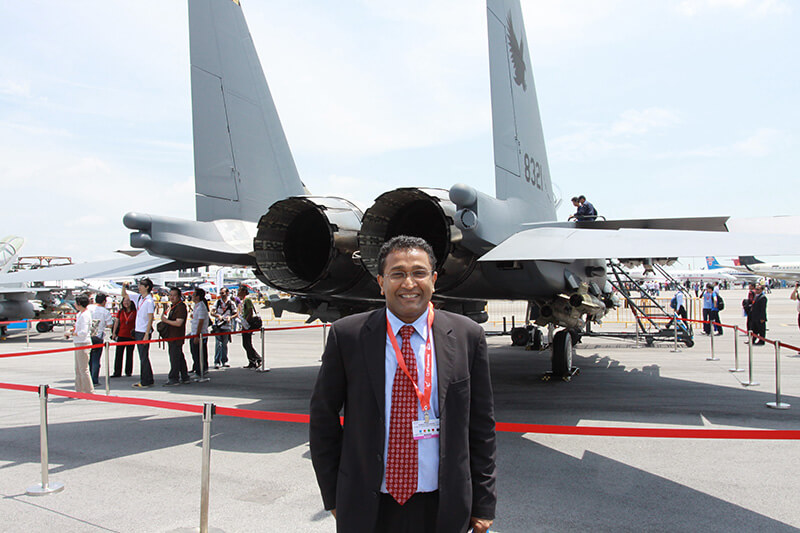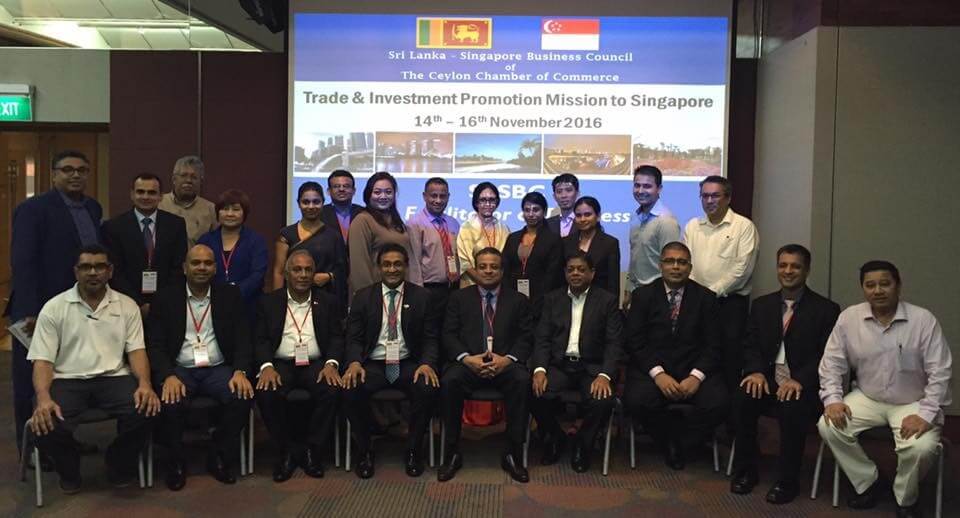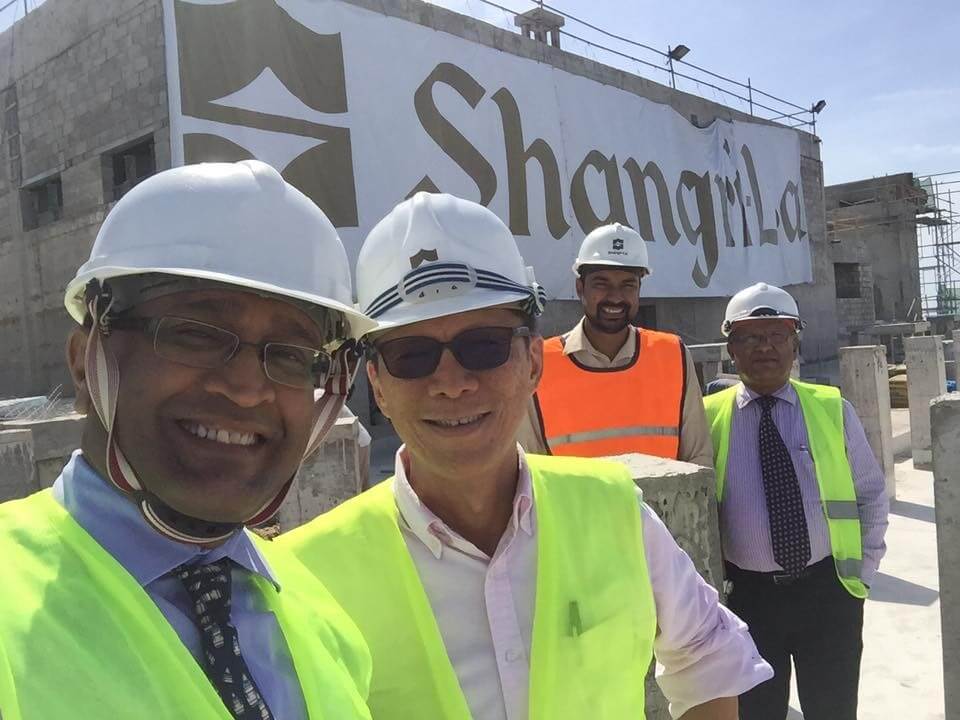
Duminda Ariyasinghe (MPM 2012)
Director General/CEO
Board of Investment of Sri Lanka (BOI)
Back when I was working in the private sector in the US and Canada, I was with Fortune 500 companies such as Procter & Gamble, Kraft Foods, and H.J. Heinz. I was a marketing strategist and had a progressive career winning some of their highest awards, but there was a void that I couldn’t fill. My father was a senior civil servant in Sri Lanka, and he had always told me to look beyond my personal ambitions to find fulfilment.
[ALUMNI-INFO TEXT="I started looking out for an opportunity that would allow me to return to Sri Lanka, and fortuitously, I heard about an opening at Sri Lanka’s Board of Investment, the agency responsible for attracting foreign investments to the country. That’s when I gave up my career in North America.
In 2012, I was awarded the Lee Kuan Yew Fellowship by the Singapore government to complete a Master in Public Management degree at the LKY School, as well as the Harvard Kennedy School. The LKY School exposes you to the best of Asian thinking in public policy, and I don’t think there’s anything that even comes close.
To a lot of us in South Asia, acquiring first-world status is almost like a pipe dream. But at the LKY School, they gave us the tools to understand what it would take to reach Southeast Asia’s level of economic development. Apart from the stellar professors, there were many guest lecturers, including visiting heads of state and ministers, to give us a broader perspective.
My most memorable moment at the LKY School was listening to Lee Kuan Yew himself; he was physically frail at the time but his mind was as sharp as ever. I asked him about Sri Lanka, about the reforms we needed to undertake. It was inspiring to listen to the person responsible for creating “a first-world oasis in a third-world situation.” He emphasized the need to build an inclusive society in Sri Lanka now that the civil conflict had ended."][/ALUMNI-INFO]

[ALUMNI-QUOTES TEXT="I am grateful to the Singapore government for the scholarship and I have shared the knowledge gained with others in my organisation, to make them see our country’s potential. At the end of the day, what you achieve depends on how well you motivate your team, because there’s only so much that you can do on your own.
Being in Singapore taught me that you need to address the core fundamentals to give investors the confidence in a country’s management. Investors don’t want rules to change, and they don’t want economic policies to suddenly shift. Historically, Singapore and Sri Lanka have had a strong economic relationship, and my job is to get it back to what it used to be especially in terms of attracting investments. Sri Lanka is doing well in a number of sectors including Tourism, Infrastructure, Value-added Manufacturing, Logistics, IT/Knowledge Services and Agriculture. Flagship investments include Shangri-la chain which established first hotel in Singapore and is now investing over US$1billion in Sri Lanka. Tourism is one of our rapidly growing industries but transformational changes need to be made including in service delivery. Undoubtedly, over time, our service sector will expand as we develop our educational, health and financial services while developing manufacturing through foreign direct investments and technology to increase productivity. We are keen to develop Colombo as the most liveable world class city in South Asia in much the same way Singapore is in Southeast Asia. Overall, meritocracy, pragmatism, and honesty will be critical factors in getting us to the next level."][/ALUMNI-QUOTES]

One of the reasons for the success of Singapore is its inclusive nature. The average Singaporean feels the country and the leadership will help him advance in society. That’s a lesson for us in South Asia. I know there are people in the system who want to achieve the same goals that I do. I work with likeminded individuals, and I exercise patience. Frustration is inevitable, but change takes time.
The advantage of Sri Lanka is that our people are bright; if I had to sum up my country’s psyche in one word, it would be “ingenuity.” Our people are quick to learn and improvise, and that’s feedback we’ve heard from our investors too.
Ten years ago, no one would’ve foreseen an end to the civil conflict in Sri Lanka. But it did end in 2009, and we had a peaceful change of government. Now, there is a window for us to move forward in terms of economic transformation. We need to capitalise on opportunities, because the world is dynamic, and sometimes, windows can close. I think we are well positioned for progress, and I’m cautiously optimistic.
I am a proud Sri Lankan and want Sri Lanka to be a better place.
Any advice for students hoping to join the public sector?
If you want to join the public sector, it cannot be a selfish decision. You must have a heart for it, and a desire to want to effect change for the better—a change that benefits not just you, but society as a whole.
As an LKY School student, where did you spend most of your time?
Botanic Gardens. I just loved the place. I jogged, I walked, and I put my music on. On any given day, I would spend up to two hours there. There are so many different themes—you’ll never get bored moving from one section to another. And of course, the beautiful lakes. It’s the one place in the world where I feel perfectly at peace.
What do you miss most about life in Singapore?
My friends. I have a lot of good friends in Singapore, and some of them pre-date my going to Singapore for the scholarship. Singaporeans have a reputation for being business-like, but some of the warmest people I know are from Singapore. Many of my Singaporean friends can relate to what Singapore was like before the significant developments took place. I’ve gone to countries where people have dismissed my efforts to steer Sri Lanka towards a better future, but Singaporeans have witnessed that it is possible, and they recognise the challenges that I face. My Singaporean friends know that I am striving and trying to do my best, and they have been behind me all the way.